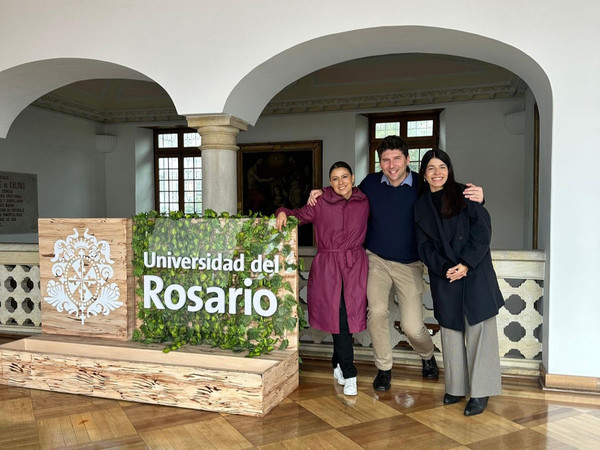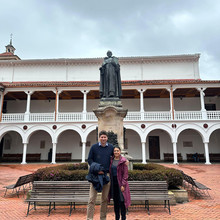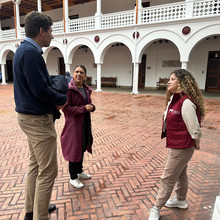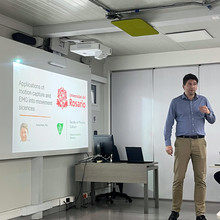What does biomechanics look like in practice on the other side of the world? Tomáš Klein from the Faculty of Physical Culture (FTK) at Palacký University Olomouc spent the penultimate week of March at Universidad del Rosario (UR) in Bogotá, Colombia, where he delivered a series of interactive lectures and workshops as part of the Erasmus+ programme. His sessions focused on the application of 3D motion analysis and electromyography (EMG) in movement science and clinical practice. He also introduced local students and faculty to a cutting-edge method for decomposing EMG signals into individual motor unit activity—an approach currently used in FTK’s biomechanics research.
“One of the most pleasant surprises was the level of engagement from the students. Our discussions often went on long after the lectures ended,” said Tomáš Klein. “It was clear they were genuinely curious and eager to apply what they’d learned in real-life contexts.”
The visit also included meetings with UR faculty members to explore future collaboration opportunities, including further teaching exchanges, research knowledge sharing, and potential joint projects.
Klein’s mobility builds on a long-standing partnership between FTK and UR, which officially began in 2017. Since then, UR lecturer Laura Victoria Rivera Amézquita has completed multiple teaching stays at FTK, and four FTK students have undertaken study or traineeship placements in Colombia. In 2020, Rivera also began her doctoral studies in Olomouc. She actively contributes to research on biomechanical parameters and biomarkers related to health and athletic performance and is involved in validating the clinical tool known as the Modified Landing Error Scoring System (MLESS)—a project that also includes FTK students.
The collaboration between FTK and UR is a model example of international partnership in action. Academic exchanges, teaching, and knowledge sharing all contribute to achieving shared goals—whether enhancing students’ clinical competencies, conducting experiments in an international context, or launching new research initiatives. Tomáš Klein’s visit is a tangible step toward these goals. It enabled first-hand engagement with UR labs and students, facilitated the exchange of research methods and findings, and helped identify new avenues for deeper cooperation. The FTK–UR partnership is more than just a formal exchange. It’s a dynamic collaboration that connects continents, people, and ideas. And thanks to mobilities like this one, international cooperation becomes not only visible, but impactful—shaping a shared path toward long-term and sustainable development.



